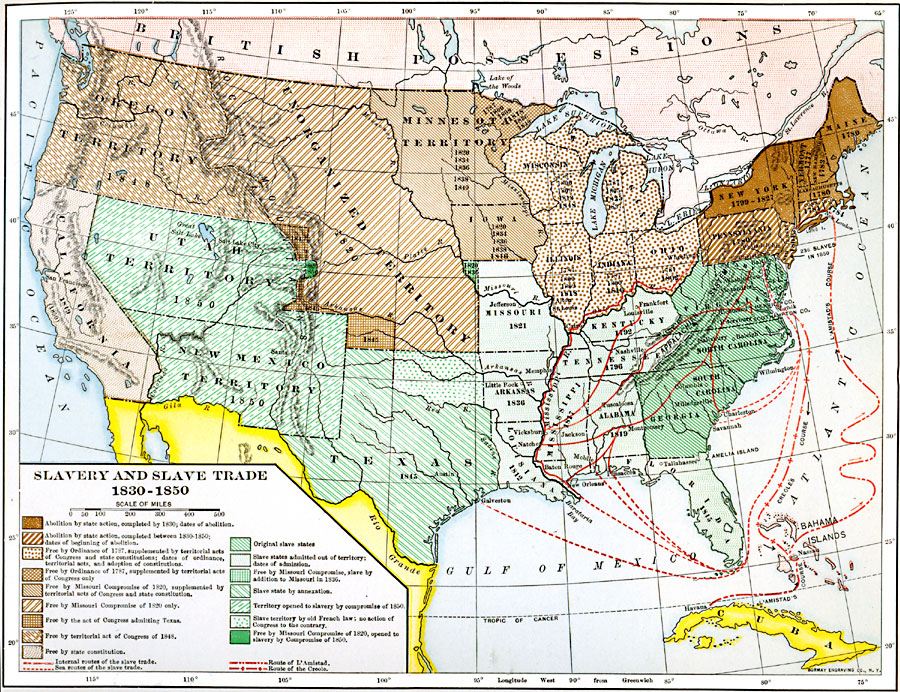Description: A map of the United States during the period of 1850 to 1850 showing the effects of slavery, the slave trade, and the abolition movement on territorial development. The map uses colored patterns to indicate the areas and phases of abolition and admission to the Union, including the original slave states, abolition by state action, free by the Ordinance of 1787, free by the Missouri Compromise of 1820, free by the territorial act of Congress, free by state constitution, slave by addition to Missouri in 1836, slave territory by old French law, and slave state by annexation. The map shows the internal and sea routes of the slave trade, and the routes of the slave rebellions onboard the Amistad from Havana to Long Island (1839), and onboard the Creole from Hampton Roads to Nassau in the Bahamas (1841).
Place Names: Growth of Nation, Alabama, �Arkansas, �California, �Connecticut, �Delaware, �Florida, �Georgia, �Illinois, �Indiana, �Iowa, �Kentucky, �Maine, �Massachusetts, �Minnesota Territory, �Mississippi, �Missouri, �New Hampshire, �New Jersey, �New Mexico Territory, �New York,
ISO Topic Categories: oceans,
location,
inlandWaters
Keywords: Slavery and Slave Trade, borders, �historical, �slavery, historical event, oceans,
location,
inlandWaters, Unknown, 1830–1850
Source: Dixon Ryan Fox, Harper's Atlas of American History (New York, NY: Harper & Brothers Publishers , 1920) 42
Map Credit: Courtesy the private collection of Roy Winkelman |
|
